Featured
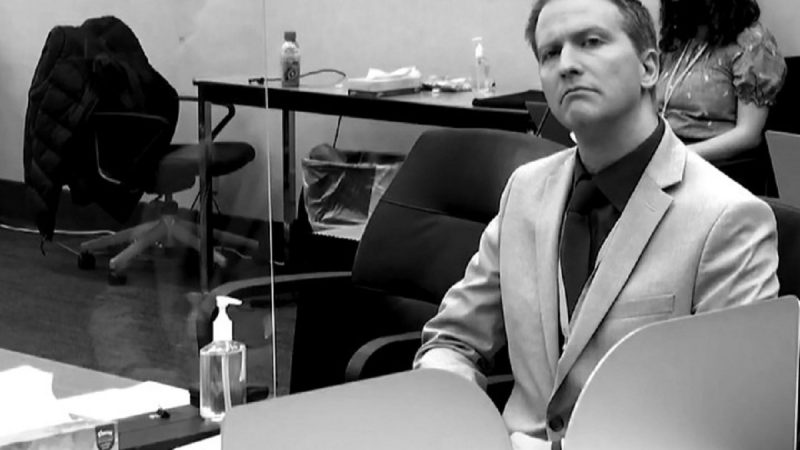 Chauvin Verdict: Convicted in the Killing of George Floyd. By David A. Graham / The Atlantic
Chauvin Verdict: Convicted in the Killing of George Floyd. By David A. Graham / The Atlantic
Jurors in Minnesota took barely 10 hours to convict Derek Chauvin in the May 2020 death of George Floyd on all three charges against him, offering a quick and decisive verdict in the most-watched police-misconduct case in years. “It was a murder in full light of day, and it ripped the blinders off for the whole world to see,” President Joe Biden said this evening. “For so many, it feels like it took all of that for the judicial system to deliver just basic accountability.” Read more
Related: The Chauvin Verdict Represents an Absolute Minimum of Justice. By Elie Mystal / The Nation
Political / Social
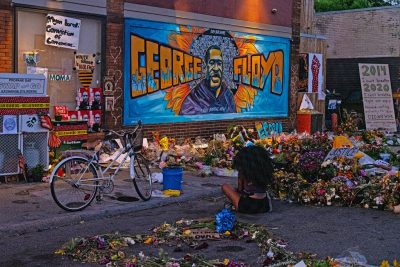 The Death of George Floyd Reignited a Movement. What Happens Now? Audra D. S. Burch, Amy Harmon, Sabrina Tavernise and
The Death of George Floyd Reignited a Movement. What Happens Now? Audra D. S. Burch, Amy Harmon, Sabrina Tavernise and
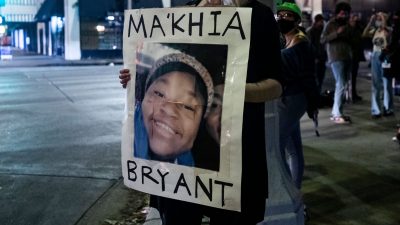 Teen Girl Killed By Columbus Police On Afternoon Of Chauvin Verdicts. By Dominique Mosbergen / HuffPost
Teen Girl Killed By Columbus Police On Afternoon Of Chauvin Verdicts. By Dominique Mosbergen / HuffPost
A teenage girl was shot dead by a police officer in Columbus, Ohio, on Tuesday afternoon, about the same time that a jury in Minneapolis was returning guilty verdicts against Derek Chauvin, a former cop, in the killing last year of George Floyd. Graphic body-camera footage of the incident, made public by police at a news conference Tuesday night, showed officers arriving at a southeast Columbus neighborhood and finding a commotion in front of a house. Read more and watch the body-camera footage here
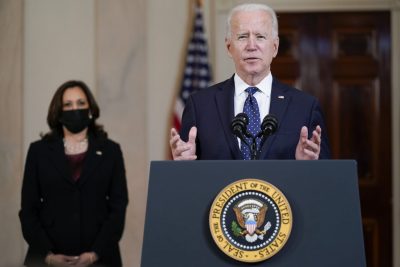 What you need to know about the George Floyd Justice in Policing Act. By Al Tompkins / Poynter
What you need to know about the George Floyd Justice in Policing Act. By Al Tompkins / Poynter
In the moments after Judge Peter Cahill read the guilty verdicts in the Derek Chauvin trial, President Joe Biden called the Floyd family to promise to push for the George Floyd Justice in Policing Act. This hotly debated legislation would affect how police handle prisoners, make it easier to successfully sue abusive officers and cut police departments off from the supply of military-grade equipment that they say they need to stay safe. Read more
Related: Democrats renew push for George Floyd Justice in Policing Act. By Tal Axelrod / The Hill
Related: Chicago police ‘reform’ failed Adam Toledo. New thinking is essential. By Sheila Bedi / Wash Post
 A violent police encounter in Virginia is a reminder of the anti-Black racism Latinos must fight. By Julio Ricardo Varela / Wash Post
A violent police encounter in Virginia is a reminder of the anti-Black racism Latinos must fight. By Julio Ricardo Varela / Wash Post
 Inside the Democratic strategy to expand voting rights state by state. By Liz Crampton / Politico
Inside the Democratic strategy to expand voting rights state by state. By Liz Crampton / Politico
Who can vote in the next election — and how easily — will depend on where Americans live more than at any point in recent decades. Red and blue states are on opposite tracks in shaping the electoral process: As Republicans pass some of the most restrictive voting laws of modern times, Democrats are ramping up a strategy to expand voting rights by passing bill after bill to make it easier for more Americans to access the ballot box. Shown is State Rep. Park Cannon who is escorted out of the Georgia Capitol Building by Georgia State Troopers on March 25, 2021. Cannon was asked to stop knocking on a door that lead to Gov. Brian Kemp’s office while he was signing a sweeping overhaul of state elections behind closed doors. Read more
Related: Republicans grill Stacey Abrams: Are blue states ‘racist,’ too? By Jane C. Timm / NBC News
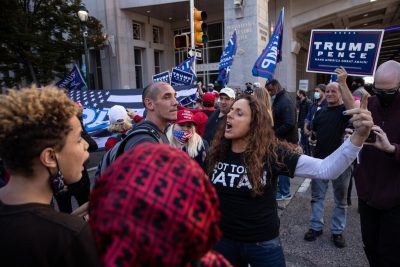 Why Political Sectarianism Is a Growing Threat to American Democracy. By Nate Cohn / NYT
Why Political Sectarianism Is a Growing Threat to American Democracy. By Nate Cohn / NYT
American democracy faces many challenges: New limits on voting rights. The corrosive effect of misinformation. The rise of domestic terrorism. Foreign interference in elections. Efforts to subvert the peaceful transition of power. And making matters worse on all of these issues is a fundamental truth: The two political parties see the other as an enemy. In recent years, many analysts and commentators have told a now-familiar story of how democracies die at the hands of authoritarianism: A demagogic populist exploits dissatisfaction with the prevailing liberal order, wins power through legitimate means, and usurps constitutional power to cement his or her own rule. It’s the story of Putin’s Russia, Chavez’s Venezuela and even Hitler’s Germany. Read more
Related: Why Trump Is Still Their Guy. By Thomas B. Edsall / NYT
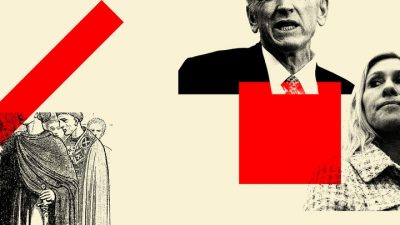 ‘Anglo-Saxon’ Is What You Say When ‘Whites Only’ Is Too Inclusive. By Adam Serwer / The Atlantic
‘Anglo-Saxon’ Is What You Say When ‘Whites Only’ Is Too Inclusive. By Adam Serwer / The Atlantic
Last week, far-right Republican Representatives Marjorie Taylor Greene and Paul Gosar distanced themselves from a proposal to create an America First Caucus, after a document bearing the group’s name made reference to “Anglo-Saxon political traditions.” The Anglo-Saxonism to which I refer has little to do with the Germanic peoples who settled in medieval England. Rather, it’s an archaic, pseudoscientific intellectual trend that gained popularity during the height of immigration from Eastern and Southern Europe to the United States, at the turn of the 20th century. Nativists needed a way to explain why these immigrants—Polish, Russian, Greek, Italian, and Jewish—were distinct from earlier generations, and why their presence posed a danger. Read more
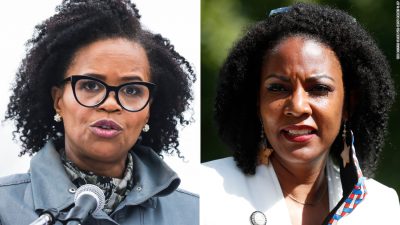 Black women are gaining political power in US cities. By Nicquel Terry Ellis / CNN
Black women are gaining political power in US cities. By Nicquel Terry Ellis / CNN
A new wave of Black women are breaking barriers as they ascend to mayoral seats in cities with deeply rooted histories of racism and inequality. On Tuesday, Tishaura Jones will be sworn in as the first Black female mayor of St. Louis after winning the election earlier this month. Her victory came just two weeks after Kim Janey was appointed Boston’s first Black female mayor following the resignation of Marty Walsh, who is now the US Labor Secretary. Janey recently announced she would run for a full term in this year’s mayoral election. With the ascension of Jones and Janey, there will be a historic high of nine Black women serving as mayors of the nation’s 100 largest cities. Other major cities led by Black women include Atlanta, San Francisco; Chicago; Baton Rouge, Louisiana; New Orleans; Washington, DC; and Charlotte, North Carolina. Shown are Kim Janey and Tishaura Jones. Read more
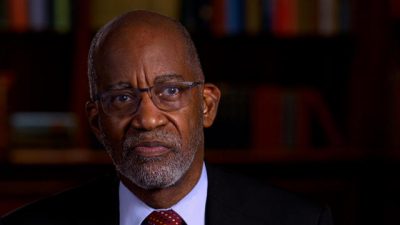 Racism’s corrosive impact on the health of Black Americans. By Bill Whitaker / CBS News
Racism’s corrosive impact on the health of Black Americans. By Bill Whitaker / CBS News
When the Centers for Disease Control declared last week that racism is a serious public health threat in America, it acknowledged something that researchers have found for decades: on nearly every measure of health, African Americans are more prone to serious disease and premature death. Dr. David Williams, who is originally from the Carribean island of St. Lucia, is a professor of public health at Harvard and chairman of its Department of Social and Behavioral Sciences. He has spent a quarter-century researching the corrosive impact that racism has on the health of people of color all around the world. Read more
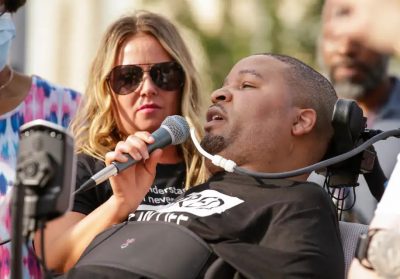 The car as a symbol of freedom? Not if you’re Black. By Paul Butler / Wash Post
The car as a symbol of freedom? Not if you’re Black. By Paul Butler / Wash Post
A car is one of the most dangerous places in America for a Black man. The risk comes from the police, not other drivers. For White people, the automobile symbolizes freedom and adventure. But for people of color, the open road too often leads to racial profiling and police violence. That is not an accident. Anti-Blackness is embedded in official practices authorized by the Supreme Court and embraced by law enforcement policies. Shown is Jerime Mitchell who speaks to the crowd at a protest against police brutality in Cedar Rapids, Iowa, on June 6. An insurance company for the City of Cedar Rapids will pay $8 million to Mitchell, who was paralyzed after police officer Lucas Jones shot him during a 2016 traffic stop. Read more
Historical / Cultural
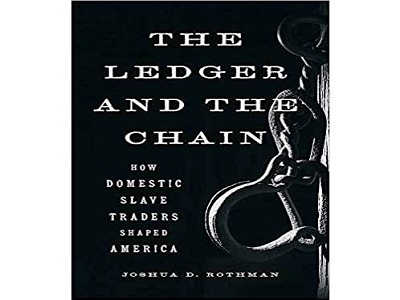 Slave traders Rothman review: New history Ledger and the Chain explodes all the old myths. By Rebecca Onion / Slate
Slave traders Rothman review: New history Ledger and the Chain explodes all the old myths. By Rebecca Onion / Slate
Why would someone ever get into the business of selling other human beings? That’s the dark question that drove historian Joshua Rothman to write The Ledger and the Chain: How Domestic Slave Traders Shaped America, his tremendous new book about the lives of 19th-century businessmen Isaac Franklin, John Armfield, and Rice Ballard. “The observation that Franklin, Armfield, and Ballard lived in a nation that sanctioned and rewarded the market exchange of people as property is true,” Rothman begins. “But it is inadequate.” Read more
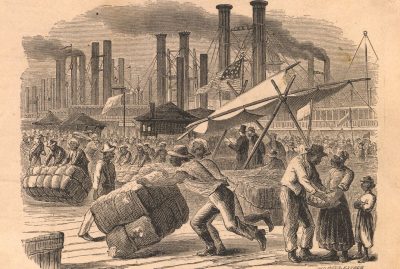 Before the Civil War, New Orleans Was the Center of the U.S. Slave Trade. By Joshua D. Rothman / Smithsonian Magazine
Before the Civil War, New Orleans Was the Center of the U.S. Slave Trade. By Joshua D. Rothman / Smithsonian Magazine
Waiting for the slave ship United States near the New Orleans wharves in October 1828, Isaac Franklin may have paused to consider how the city had changed since he had first seen it from a flatboat deck 20 years earlier. The New Orleans that Franklin, one of the biggest slave traders of the early 19th century, saw housed more than 45,000 people and was the fifth-largest city in the United States. Its residents, one in every three of whom was enslaved, had burst well beyond its original boundaries and extended themselves in suburbs carved out of low-lying former plantations along the river. Read more
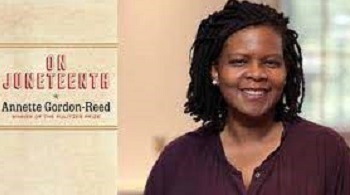 The Historian Annette Gordon-Reed Gets Personal in ‘On Juneteenth.’ By Jennifer Szalai / NYT
The Historian Annette Gordon-Reed Gets Personal in ‘On Juneteenth.’ By Jennifer Szalai / NYT
The historian Annette Gordon-Reed’s “On Juneteenth” is an unexpected book. She’s best known for her work on Thomas Jefferson and Sally Hemings, the enslaved woman with whom Jefferson had multiple children — a once controversial thesis that’s now accepted as historical fact in large part because of Gordon-Reed’s scholarship. In “On Juneteenth,” Gordon-Reed identifies quite closely with her subject — and only a sliver of the book is directly about Juneteenth itself. Read more
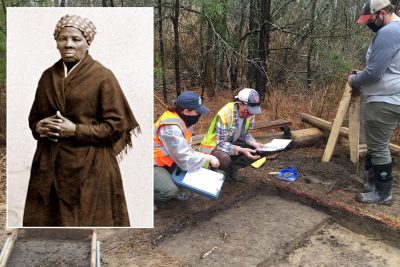 Archaeologists find Maryland site of home where Harriet Tubman’s father once lived. By Mitchell McCluskey and David Williams / CNN
Archaeologists find Maryland site of home where Harriet Tubman’s father once lived. By Mitchell McCluskey and David Williams / CNN
Archaeologists working in a remote, marshy site on Maryland’s Eastern Shore say they’ve found the site of home where Ben Ross, the father of famed abolitionist Harriet Tubman, once lived. Maryland Lt. Gov. Boyd Rutherford announced the discovery at a news conference on Tuesday, along with state and federal officials and the archaeologists from the Maryland Department of Transportation (MDOT), which made the find. Read more
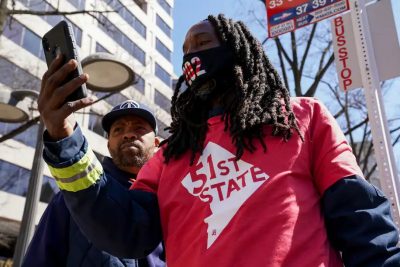 Celebrating emancipation as we fight for representation. By Stasha Rhodes / Wash Post
Celebrating emancipation as we fight for representation. By Stasha Rhodes / Wash Post
The history of Black America after emancipation is defined by courage and constant struggle against injustice. There is no more perfect example of that truth than D.C. Emancipation Day. On April 16, we will celebrate the day in 1862 when 3,100 enslaved people in D.C. were freed. And on that day, we will also stand up to demand equal representation for the residents of D.C., the majority of whom are Black or Brown, still living in the shadows of democracy. We will remind our senators that emancipation without representation is not freedom. Read more
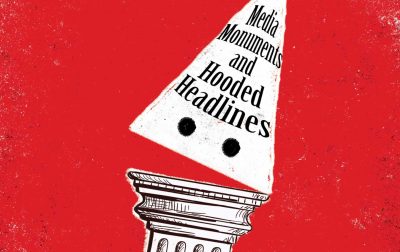 American Journalism’s Role in Promoting Racist Terror. By Channing Gerard Joseph / The Nation
American Journalism’s Role in Promoting Racist Terror. By Channing Gerard Joseph / The Nation
Although it’s rarely discussed, even at elite journalism schools like the one where I teach, a significant portion of America’s existing news business was built on slavery and other forms of racist terror. While the Orleans Gazette ceased publication in the 19th century, there still exist numerous newspapers that once sustained themselves by selling advertising space to slaveholders who wanted to recapture runaways or who sought to sell their human property at auctions like the one where my ancestor Stephen once found himself. Read more
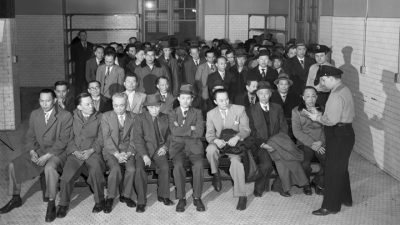 We Are Constantly Reproducing Anti-Asian Racism. By Mae Ngai / The Atlantic
We Are Constantly Reproducing Anti-Asian Racism. By Mae Ngai / The Atlantic
In the late 19th century, white Americans faced the prospect that Chinese people and other Asians might become a significant portion of the population of the United States. In response, they passed a series of laws excluding the Chinese people from immigration and citizenship. For many Asian Americans, the policy of exclusion looms as large as Jim Crow does for Black people. The association is more than a metaphor. In the late 19th century, Jim Crow and Chinese exclusion were related projects of white supremacy, one in the South and one in the West. Read more
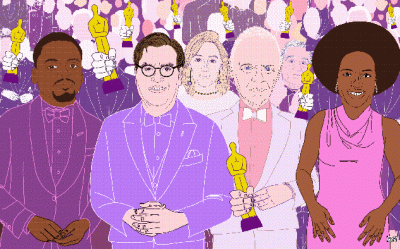 The #OscarsAreStillSoWhi
The #OscarsAreStillSoWhi
In the six years since the #OscarsSoWhite movement highlighted the dearth of members of marginalized groups in Academy Award-nominated films, the diversity of both on-screen and behind-the-camera roles has barely improved. Saying it plainly: The #OscarsAreStillSoWhite. They also remain predominantly male, with patterns of inequality both in front of the camera and behind the camera. A new analysis of all the best picture nominees from 2014 through 2020, shows: Read more
Sports
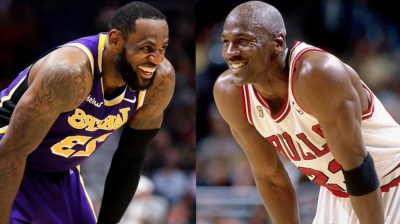 Gary Payton declares LeBron James ‘by far’ better all-around player than Michael Jordan. By Peter Dewey / Lakers Daily
Gary Payton declares LeBron James ‘by far’ better all-around player than Michael Jordan. By Peter Dewey / Lakers Daily
Hall of Famer Gary Payton battled the great Michael Jordan during his playing career, but he doesn’t consider Jordan to be the best all-around player ever. Jordan won six NBA titles with the Chicago Bulls during his storied playing career. James, who is looking to lead the Lakers to another title, won his fourth NBA championship last season. The two have amazing resumes, but it certainly is hard to compare eras and players that played different positions. Still, James will have the title as the better all-around player in Payton’s eyes. Read more
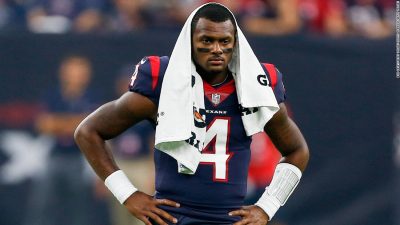 Deshaun Watson’s attorney says lawsuits contain ‘avalanche’ of false accusations. By Steve Almasy and Shawn Nottingham / CNN
Deshaun Watson’s attorney says lawsuits contain ‘avalanche’ of false accusations. By Steve Almasy and Shawn Nottingham / CNN
Attorneys for Deshaun Watson said in a court filing Monday that 22 lawsuits filed by women are either inaccurate or mischaracterize their interactions with the NFL star quarterback. “Mr. Watson has been adamant that he did not engage in any improper conduct and we strongly believe him,” attorney Rusty Hardin said in a statement. He said his legal team has discovered “an avalanche of false accusations.” The cases have been filed separately but pretrial motions are being heard by one judge, Hardin has said. In their legal response, Watson’s attorneys say they recently learned the identities of his accusers and that led them to uncover evidence that “numerous allegations in this onslaught of cases are simply not true or accurate.” Read more
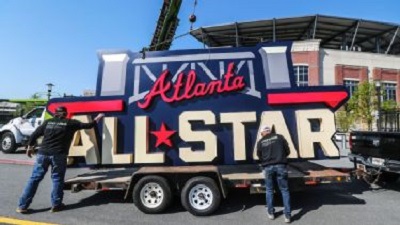 Derek Chauvin verdict – Have leagues upheld social justice promises since George Floyd’s murder? By ESPN Staff
Derek Chauvin verdict – Have leagues upheld social justice promises since George Floyd’s murder? By ESPN Staff
High-profile athletes from multiple leagues and sports participated in protests against police brutality throughout the United States. Legends, including the famously reticent Michael Jordan, spoke out: “I stand with those who are calling out the ingrained racism and violence toward people of color in our country,” he said in a statement on May 30. The cumulative effect put the power brokers within sports on notice: Do you stand with us? Read more
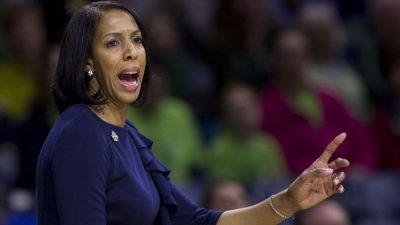 Black coaches are on the rise among NCAA basketball teams. By Jamal Murphy / The Undefeated
Black coaches are on the rise among NCAA basketball teams. By Jamal Murphy / The Undefeated
In 2021 eight of the 17 Division I head-coaching hires (47%) in women’s basketball have been Black and seven have been Black women, including two of the five Power 5 vacancies. In the men’s game, 25 of the 49 (51%) Division I head-coaching hires have been Black, including seven of 13 in the Power 5 plus the Big East. The number of Black players and assistant coaches in NCAA Division I college basketball compared with the number of Black head coaches has long been disproportional. According to the NCAA Demographics Database in 2019-20, Black players accounted for 56% of all players, Black assistant coaches accounted for 48% of all assistants, and Black head coaches only represented 28% of all head coaches. Read more
Site Information
Visit our home page for more articles, book/podcast and video favorites. And at the top of this page register your email to receive notification of new editions of Race Inquiry Digest. Click here for earlier Digests.
About Race Inquiry and Race Inquiry Digest. The Digest is published on Mondays and Thursdays.
Use the buttons below to share the Digest in an email, or post to your Facebook, Linkedin or Twitter accounts.